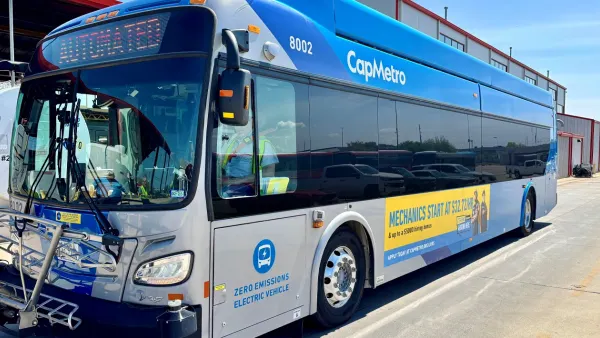Dive Brief:
- Lyft on Thursday announced a new version of its app that aims to improve shared rides, integrate directly with public transit and simplify the passenger experience.
- The new app will change the name of "Lyft Line" rides to "Lyft Shared" in an effort to make shared rides account for 50% of all Lyft trips by the end of 2020. The app will provide riders with price and time comparisons of ride options to optimize ride choices.
- Lyft has also partnered with 25 cities to integrate and collaborate with public transit agencies. The first two app integrations of the partnership will happen in Marin County, CA and Santa Monica, CA, and will provide discounts to passengers using Lyft Shared to get to and from transit stations.
Dive Insight:
Lyft VP of Government Relations Joseph Okpaku told TechCrunch one of the main goals of the app redesign is to get more people in a smaller number of cars, which is a trending focus for ride-hailing companies. As cities push for reduced car dependency and personal car ownership, companies like Uber and Lyft — which are popular in-part due to their private ride services — are working to ween their customers off personal, one-passenger trips. Until now, Uber was ahead of Lyft on this trend, having introduced an "Express Pool" service in February to incentivize customers for selecting a shared ride option over UberX.
Lyft's decision to partner with cities on solving first mile/last mile transportation problems is also a welcomed initiative, as more cities are seeking shared mobility solutions to get citizens on public transit and boost sagging ridership. Aside from ride-hailing partnerships, many cities have turned to bike-share and scooter-share pilots, as well as microtransit programs, to reach underserved areas and increase transit inclusivity.
While this is a significant announcement from Lyft, the company is still tight-lipped on its rumored $250 million acquisition of bike-share operator Motivate. If Lyft does confirm the deal, it will make the company a multi-modal mobility giant and level the playing field with Uber, which purchased electric bike-share operator Jump in April. That deal was also driven by a desire to decrease car dependency — at the time of the deal, Jump CEO Ryan Rzepecki wrote, "We realized that we shared Uber’s vision of multi-modal mobility and had the same goal of decreasing car ownership."











